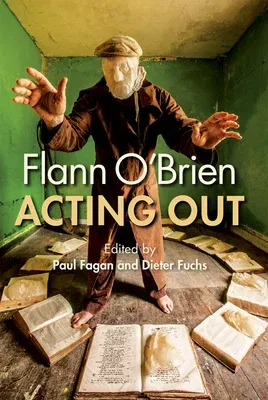Flann O'Brien: Acting out is the first full-length study to
comprehensively address the themes of performance, masking and illusion
in the author's fiction, columns, correspondence and scripts. These
essays reveal, for the first time, the fullness of O'Brien's literary
engagements with diverse theatrical movements (melodrama, revivalism,
tableaux vivant, Grand Guignol, modernist anti-theatre) and playwrights
(Shakespeare, Goethe, Boucicault, Synge, Yeats, Gregory, Pirandello,
Brecht, Beckett, Čapek). Often considered a lonely pioneer of the Irish
novel, the author is here resituated both among a troupe of mid-century
playwrights, producers and performers (mac Liammoír, Edwards, Saroyan,
Montgomery, Sheridan, MacNamara, O'Dea) and in front of discrete local
audiences (at The Irish Times, the Abbey, the Gate, Radio Éireann,
Telefís Éireann). A new picture of O'Brien emerges as a performative and
collaborative writer, firmly imbedded in the cultural networks and
institutions of his time and place. Flann O'Brien: Acting out draws
unprecedented attention to the author's critically neglected writing for
stage and screen (Thirst, Faustus Kelly, Rhapsody in Stephen's Green, An
Sgian, The Handsome Carvers, Mairéad Gillan, The Dead Spit of Kelly).
These scripts are here reevaluated against their historical contexts and
through their thematics of war, nationalism, gender, nonhuman bodies and
posthuman identity. At the same time, innovative readings of the role of
masking and mimicry in the fiction and columns (At Swim-Two-Birds, The
Third Policeman, 'John Duffy's Brother', 'The Martyr's Crown', Cruiskeen
Lawn) shed new critical light on O'Brien's pseudonyms, his theories of
literary performance, his modulation of comic and tragic tone, and his
shifting place in Irish modernism.

